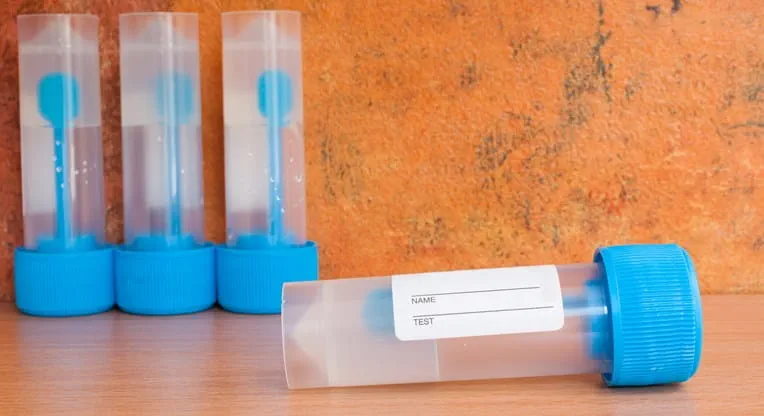Information on colorectal cancer and its detection.
What is colorectal cancer?
Colorectal cancer, commonly known as colon cancer is the cancer that forms in the large intestine or the rectum (the last part of the large intestine).
This type of cancer occurs rather frequent since, in Belgium there are about 6500 new cases every year.
Unfortunately, this type of cancer doesn’t show any symptoms until it is quite advanced and therefore it is very important to have a detection test or screening.
The other good reason for the importance of early detection, is that colon cancer shows very good results in terms of healing prognosis.
How does colon cancer develop?
Colon cancer usually starts developing out of one or more polyps in the intestine. Such polyps can be completely benign, but in term present a risk for degenerative development. This process is usually quite slow (between 7 and 10 years) and therefore screening is of the utmost importance. During a colonoscopy, the doctor will be able to visualise the polyps and has the opportunity to remove them before they can degenerate into cancer cells.
Which are the symptoms that could be an indication of colon cancer?
Symptoms of colorectal cancer can include :
Changes in faecal habits that last several weeks (constipation or diarrhea or alternations between these two)
Blood or phlegm in the stools
Stomach aches and more particularly cramps, flatulance etc.
Considerable fatigue
Unexplainable weight loss
Urge to defaecate without defaecation
Careful : these symptoms are also signs of other pathologies and are not definite indications of colon cancer. Blood in the stools, for example, can also be linked to hemorrhoids or a small anal injury. The aboven mentioned symptoms are to be considered as warning signals that call for a doctor’s visit and not as a diagnosis.
Who are the people at risk?
People over age 50 (90% of the cases)
Individuals with a family history (people who have previously been diagnosed with colorectal cancer or polyps or who have a close family member who has suffered from this disease)
Individuals with susceptibility in their genes (BRCA)
People suffering from an inflammatory disease of the intestine (Crohn or ulcerous colitis are pathologies that increase the risks for colorectal cancer)
Also, certain habits can contribute to the development of colorectal cancer :
Use of tobacco and high alcohol consumption
Obesity
Sedentary life
A diet containing high amounts of red meat, barbecued meat and cold cuts and poor in fruit and vegetables.
How to screen for colorectal cancer?
The most simple screening test for colon cancer consists in testing for the presence of blood in the stools, even if visually no signs are presented.
The blood can be hidden or not detectable by the naked eye and only be revealed by a stool analysis (this is called Hemoccult).
In case this test reveals the presence of blood, a colonoscopy will be able to detect its source.
In certain cases, your doctor will advise you to have a colonoscopy without doing the hemoccult test first. This blood screening test is more economical but also less certain (a negative Hemoccult test does not always exclude colon cancer).
What is a complete colonoscopy?
This is the most accurate screening test for colorectal cancer.
It is a diagnostic, screening and therapeutic test, that examines directly the walls of the intestine by means of a small and flexible device that is inserted anally.
The objective of this screening test is to detect the presence of polyps, which will be removed if possible and analysed in the laboratory (polyps that are too big, can present risks of complication and will be removed later in the hospital).
A colonoscopy is an important screening test that remains uncomfortable for two reasons :
The preparation for the test, which is inevitable.
Pain during the examination (which can be suppressed if you have chosen to have it with Diprivan medication).
A colonoscopy is given on an outpatient basis, with or without sedation (either with or without an injection of a relaxing product) or under light anesthesia with Diprivan, that will sedate the patient during the course of the complete examination (for about 20 minutes).
During this screening test, the doctor will be able to detect the possible presence of colon cancer, and he or she can also act preventatively by ablating polyps, which are lesions that present a risk of degenerating into colon cancer.
At Medicis, a colonoscopy is executed under sedation by Dr Sarafidis (who can also work with the anesthetic Diprivan). For more information or making an appointment, please call reception at 02.762.03.25.





